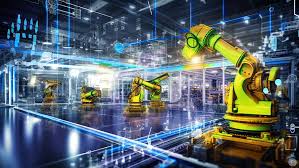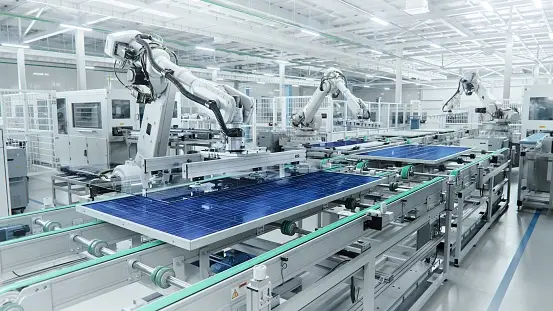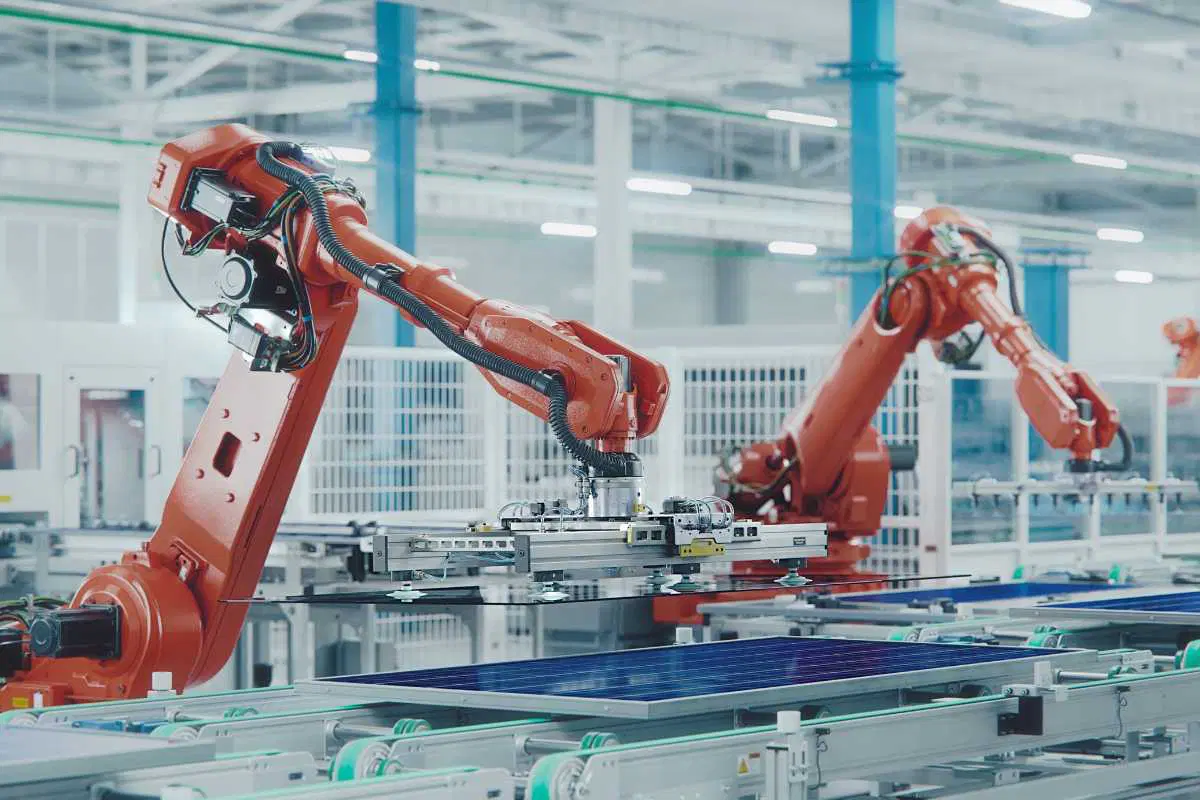The Kingdom of Bahrain has long been recognized for its economic diversification and industrial development. Over the past decade, a quiet revolution has been underway in the country’s industrial sector a revolution driven by robotics. Robotics is no longer a concept confined to research laboratories or futuristic visions; it has become a tangible, transformative force in Bahrain’s factories, manufacturing units, and production lines. From enhancing productivity to ensuring precision, robotics is reshaping the industrial landscape in ways that promise sustainable growth and global competitiveness.
Bahrain’s industrial sector, historically reliant on traditional manufacturing processes, is embracing this technological shift with enthusiasm. Companies are now integrating robotic systems not only to streamline production but also to improve safety, reduce operational costs, and boost the overall quality of products. As the country positions itself as a hub for innovation and industrial excellence in the Gulf region, robotics is proving to be an indispensable tool in achieving these goals.
Enhancing Productivity Through Robotics
One of the most significant impacts of robotics in Bahrain’s industrial sector is the remarkable increase in productivity. Unlike human labor, robots can operate continuously without fatigue, performing repetitive tasks with unmatched consistency. This capability allows factories to maintain higher production rates while minimizing errors. For industries such as automotive assembly, electronics manufacturing, and food processing, the adoption of robotic systems has resulted in faster turnaround times and the ability to meet growing consumer demand efficiently.
Moreover, robotics allows for flexible production schedules. Companies can adjust robotic workflows to handle multiple product types or variations without lengthy downtime for reconfiguration. This adaptability ensures that Bahrain’s industries remain competitive in a rapidly evolving global market, meeting customer expectations while maintaining cost-effectiveness.
Improving Precision and Quality
Quality control has always been a cornerstone of industrial success, and robotics is elevating this standard to new heights. Robotic systems are equipped with sensors, cameras, and artificial intelligence algorithms that enable them to detect even the smallest defects during production. In industries where precision is critical, such as pharmaceuticals or electronics, robotics ensures that products meet exacting standards every time.
Human error, an inevitable part of manual labor, is significantly reduced when robots are deployed. The consistency in execution provided by robotics not only improves product quality but also enhances the reputation of Bahrain’s industrial output in international markets. This focus on precision and reliability positions the country as a trusted source of high-quality manufactured goods.

Boosting Safety in Industrial Workplaces
Industrial environments often pose safety risks for human workers, especially in heavy manufacturing, chemical processing, or high-temperature operations. Robotics is transforming workplace safety in Bahrain by taking over hazardous tasks and minimizing exposure to dangerous conditions. From handling toxic substances to operating in extreme environments, robots perform tasks that would otherwise put human workers at risk.
This shift towards safer operations has multiple benefits. It reduces workplace accidents, lowers insurance costs, and fosters a positive work culture where human employees can focus on higher-value tasks. By prioritizing safety alongside productivity, Bahrain’s industries are building a foundation for sustainable and responsible industrial growth.
Driving Innovation and Technological Advancement
The integration of robotics into Bahrain’s industrial sector is not just about improving existing processes; it is a catalyst for innovation. Companies are now experimenting with advanced robotic applications, including collaborative robots (cobots), autonomous guided vehicles (AGVs), and smart robotic arms that can learn and adapt to new tasks. These innovations are enabling industries to explore new production methods, optimize supply chains, and reduce energy consumption.
Furthermore, robotics encourages collaboration between engineers, programmers, and industrial managers, fostering a culture of continuous improvement and creativity. This spirit of innovation is essential for Bahrain as it seeks to diversify its economy beyond oil and gas, positioning robotics at the forefront of a knowledge-driven industrial transformation.
Supporting Economic Diversification
Bahrain’s vision for economic diversification relies heavily on the growth of its industrial sector. Robotics plays a pivotal role in achieving this objective by enabling industries to scale operations efficiently and compete globally. By reducing dependency on manual labor and enhancing production capabilities, robotics allows Bahrain to attract foreign investment and develop high-tech manufacturing clusters.
The economic impact of robotics extends beyond production. It stimulates the creation of high-skilled jobs in programming, maintenance, and system integration. These roles not only provide career opportunities for Bahraini youth but also contribute to the development of a skilled workforce capable of driving long-term economic growth.
Facilitating Sustainable Industrial Practices
Sustainability is a growing priority in industrial operations worldwide, and Bahrain is no exception. Robotics contributes to environmentally responsible practices by optimizing energy usage, minimizing waste, and ensuring efficient resource management. Smart robotic systems can monitor energy consumption, detect inefficiencies, and adjust operations to reduce carbon footprints.
In addition, robotics enables precise material handling, reducing the excess use of raw materials and minimizing production waste. This commitment to sustainable industrial practices enhances Bahrain’s reputation as a forward-thinking nation, attracting environmentally conscious investors and partners.
Bridging the Skills Gap and Workforce Development
While robotics transforms industrial operations, it also highlights the need for skilled professionals who can design, program, and maintain these systems. Bahrain has responded to this challenge by investing in education and training programs that prepare the workforce for a robotics-driven industrial future. Universities, vocational institutes, and private training centers now offer specialized courses in robotics, automation, and artificial intelligence.
This focus on workforce development ensures that the benefits of robotics are fully realized. Employees are not replaced but upskilled, enabling them to take on more strategic roles in production, innovation, and quality control. By bridging the skills gap, Bahrain is fostering a resilient industrial workforce ready to meet the demands of modern manufacturing.

Expanding Opportunities for Small and Medium Enterprises
Robotics is not limited to large-scale factories; small and medium enterprises (SMEs) in Bahrain are also reaping its benefits. Affordable robotic solutions and automation tools are increasingly accessible, allowing SMEs to improve efficiency, reduce costs, and compete with larger players. For businesses in sectors such as food processing, packaging, and electronics assembly, robotics opens doors to new markets and higher production standards.
The democratization of robotics ensures that industrial growth is inclusive, providing opportunities for innovation and entrepreneurship across Bahrain. By supporting SMEs, robotics contributes to a diversified and resilient industrial ecosystem.
Enhancing Global Competitiveness
As Bahrain continues to integrate robotics into its industrial sector, the country’s global competitiveness is steadily rising. Automated production lines, consistent quality, and efficient operations make Bahraini products more attractive in international markets. Robotics allows industries to meet stringent global standards and deliver products on time, strengthening trade relationships and expanding export opportunities.
Moreover, the adoption of robotics signals Bahrain’s commitment to innovation and technological advancement. This positive image attracts international partnerships, investment, and collaboration, further accelerating the country’s industrial growth and global presence.
Challenges and Future Prospects
Despite its many benefits, the integration of robotics in Bahrain’s industrial sector is not without challenges. Initial investment costs, the need for specialized skills, and the integration of new technologies into existing workflows can pose obstacles. However, these challenges are increasingly being addressed through government support, industry collaboration, and educational initiatives.
Looking ahead, the future of robotics in Bahrain is bright. Emerging technologies such as artificial intelligence, machine learning, and the Internet of Things (IoT) are set to enhance robotic capabilities even further. Autonomous systems, predictive maintenance, and smart factories will become more prevalent, driving efficiency, innovation, and sustainability to unprecedented levels. Bahrain is poised to become a regional leader in industrial robotics, demonstrating how technology can transform economies and improve the quality of life for its people.
Conclusion: Robotics as a Catalyst for Industrial Excellence
The role of robotics in Bahrain’s industrial sector extends far beyond automation—it represents a transformative force driving productivity, safety, quality, and innovation. By embracing robotics, Bahrain is not only enhancing its industrial capabilities but also fostering economic diversification, workforce development, and global competitiveness.
As industries continue to evolve, robotics will remain at the heart of Bahrain’s industrial strategy, enabling sustainable growth and positioning the country as a hub of technological excellence. The Kingdom’s commitment to robotics reflects a broader vision: a future where innovation, efficiency, and human ingenuity come together to build a thriving, modern industrial landscape. Robotics is not just a tool; it is a symbol of Bahrain’s industrial ambition and its determination to lead in the era of advanced manufacturing.
Do follow Gulf Magazine on Instagram.
Also Read – Bahrain’s Digital Health Revolution: Transforming Healthcare Access



